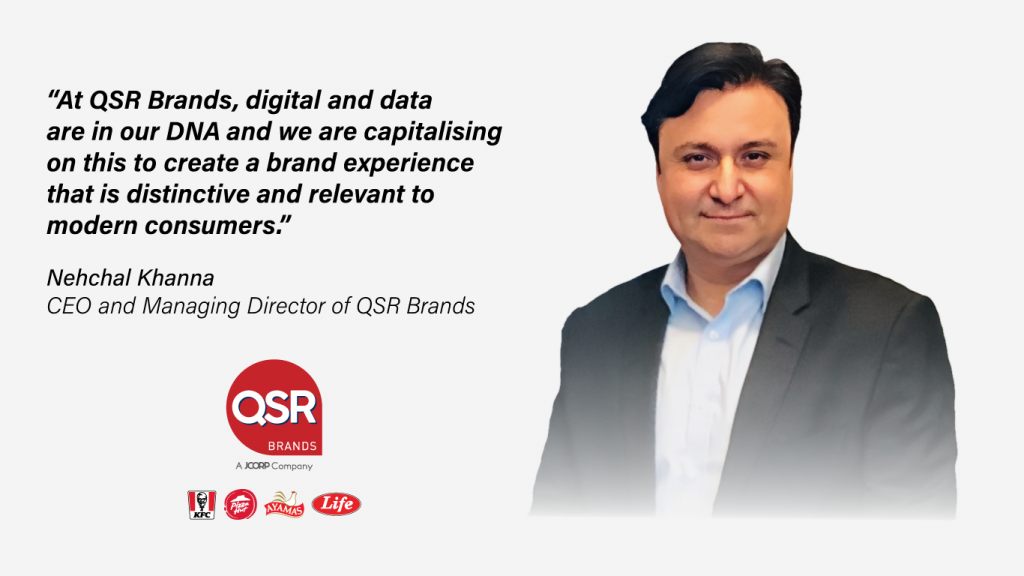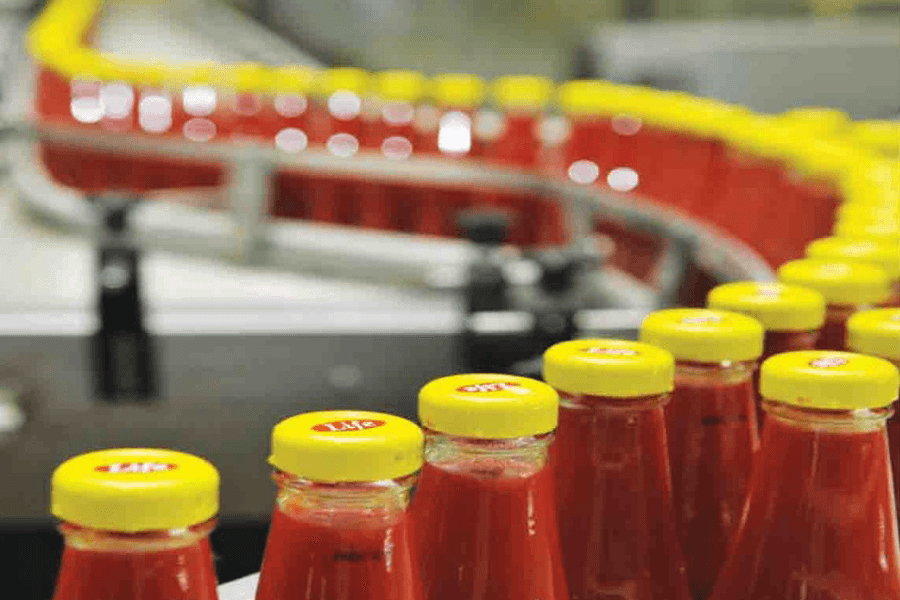In navigating the dynamic landscape of the food and beverage (F&B) industry, the key ingredient to staying ahead of the competition is the provision of a good customer experience.
To remain agile, QSR Brands (M) Holdings Berhad is ramping up its investment in restaurant technology to improve the various touchpoints of the customer journey, from ordering online and through an app to self-service kiosks and digital displays.
QSR Brands is a unit of Johor Corporation (JCorp) that operates more than 1,300 KFC and Pizza Hut restaurants in Malaysia, Singapore, Brunei and Cambodia.
Committed to leveraging technology to further enhance its digital touchpoints and cater for the needs of young digital native customers, the group is deploying Restaurant Technology 2.0 in phases this year, says Nehchal Khanna, CEO and Managing Director of QSR Brands.
“Digital innovation plays a crucial role in catering for the evolving preferences of customers. Contactless ordering is one of the growth areas that QSR Brands has put in place to meet the demand. These include self-service kiosks (SSKs), QR code ordering, and mobile apps and websites for self-collection and delivery,” he explains.

In addition, the group continues to upgrade its e-commerce platform and mobile applications for customers to enjoy a smooth ordering process. This includes features such as user-friendly interfaces, simplified navigation and faster loading times, ensuring a positive user experience from start to finish.
“We are actively upgrading our KFC and Pizza Hut e-commerce platforms with further minimum viable product (MVP) enhancements to provide a robust e-commerce platform where customers can place orders for delivery or pickup directly from our restaurants,” says Nehchal.
Loyalty programmes have also been integrated with the e-commerce platform, allowing customers to earn rewards and benefits with every purchase. This encourages repeat business and fosters customer loyalty, as they are incentivised to continue ordering from KFC and Pizza Hut to unlock exclusive perks.
Not neglecting its in-store experiences, QSR Brands has implemented self-service kiosks and QR code ordering, as well as upgraded its drive-thru processes to promote self-ordering to reduce wait times and ensure a seamless dine-in an takeaway experience.
“At QSR Brands, digital and data are in our DNA and we are capitalising on this to create a brand experience that is distinctive and relevant to modern consumers – we are making it easier to access our brands in our stores or anywhere else.” says Nehchal.
QSR Brands plans to integrate artificial intelligence (AI) and machine learning into these platforms to drive its digital roadmap, boosting its data collection and analysis to achieve a holistic understanding of how its transformation will benefit its customers and business.
“We will be adopting AI and machine learning algorithms to gain valuable insights into customer preferences, behaviour patterns and purchasing habits. This data-driven approach will enable us to tailor our marketing campaigns, optimise our menu offerings, personalise the customer experience and improve conversion rates.” says Nehchal.

Increasing Use of Local Ingredients and Automation Efforts
The outbreak of the Covid-19 pandemic in early 2020 highlighted the vulnerabilities in global supply chains and underscored the importance of food security. To mitigate these risks, QSR Brands has been prioritising local sourcing to ensure a more dependable and resilient supply of ingredients. As a matter of fact, over the years, the group has been developing a database of local suppliers to reduce its import content and carbon footprint.
“QSR Brands has always been committed to sourcing our food and raw materials locally. An example of this would be poultry, which is sourced from our own breeders and hatcheries here”, says Nehchal.
In order to mitigate the risk of supply disruptions, the group also diversified the source of its ingredients and has been working towards ensuring its business operations are sustainable, he adds.
“As a brand, we aim for diversification. This ensures that we are not dependent on a single source and minimises supply risk.”
QSR Brands also conducts a yearly review of its key suppliers as a quality control measure to ensure continuity and resilience in the supply chain. “We take immense pride in our practice of ensuring the highest food safety standards, alongside halal and shariah compliance across all our operations, says Nehchal.
Labour shortage is an ongoing issue across many industries in the country, thus QSR Brands has built a sustainable workforce ecosystem.
To ensure its production process can continue to meet its customers’ daily needs at its 1,300 restaurant chains across the region, the group has ramped up its adoption of automation technologies to cope with operational challenges.
Dubbed “RFI’s Life plant”, QSR Brands’ digital system at its manufacturing plant prioritises and schedules production lines to meet order demands, along with providing cross-training to its operational employees, which is crucial in ensuring adequate-workforce and production continuity.
“By automating certain processes, resources can be rerouted effectively, leading to improved productivity and cost savings. Investments in automated packing machines and dry mix transfer systems have notably enhanced operational efficiency.
“Moreover, efforts to reduce production material, such as utilising fresh materials in paste form to eliminate the need for grinding have been implemented.These measures not only streamline our operations but also contribute to cost saving.” says Nehchal.
